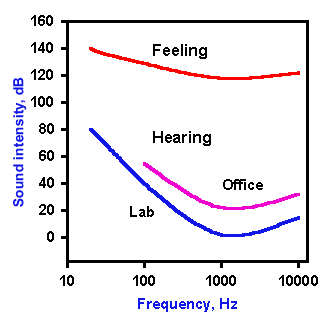
It can also be found in people with Tourettes Syndrome.

Patients with autism and obsessive compulsive disorders are more likely to show symptoms of noise sensitivity. The medical science community is still discovering new information about this illness, many suggest that it is a symptom of other mental disorders. ( Source) Noise Sensitivity & Anxiety: Studies However, recent studies have made us understand and treat this disorder better. The complexity of this disorder is beyond bounds, diagnosing it has been difficult for doctors. Unlike hyperacusis, which is a condition that makes people intolerant to loud music, a person suffering from Misophonia has no problem with the intensity or amplitude of sound waves but some psychological disability to tolerate certain sounds. Rage, frustration, and anxiety are the most common psychological symptoms that people with Misophonia have to suffer from. Instead, it can even trigger extreme reactions from some patients. In contrast, Misophonia is also a physiological and emotional response to sound, but it is not a very enjoyable experience. ASMR is a sort of audio stimulation, it also invokes an emotional and physiological response to any audio, which most people describe as a pleasant experience. If we are to compare this condition with any other condition, the ones that come closest are ASMR and Hyperacusis. This explains why a subtle or loud noise that occurs repetitively triggers a misophonic person. Familiarity between all these sounds is the repetitive motion in which they occur. Other noises include feet stomping, pen clicking, keyboard tapping, window wiping, and finger snapping. If you have a problem with people who breathe too loudly, then you also could have a minor condition of misophonia. Noises that can derail emotional stability can be the sound of heavy breathing, which is the second most common trigger for people with misophonia. Chewing noises are the most common sounds that trigger an emotional response in people who have sensitivity to selective sounds. Loud chewing is an example of a sound that can be annoying for a person with misophonia. The sounds that a person suffering from misophonia can be sensitive to and the intensity of emotional response caused by it vary from person to person. The term ‘misophonia’ is more popularly used. Misophonia does not necessarily mean hating sound but instead it is more like hating certain and specific sounds so the more appropriate way of describing it would be by calling it a selective sound sensitivity syndrome. It is called Misophonia, wherein “Miso” means hate and “phonia” means sound. Sensitivity to noise and its response in the form of anxiety’ points to a condition that many medical professionals still cannot classify to this day.

( Source) Noise Sensitivity & Anxiety: Misophonia Anxiety is a fight or flight response that be triggered by countless phenomenon, considering the complexities of human psychology. According to them, the first ever cousins of the human species used anxiety to their advantage, by fleeing from pray and avoiding dangerous outcomes.Īnxiety is a response that has played a critical role in the survival of Homo Sapiens(humans), however, statistics show that with the beginning of the modern information age there has been a sudden rise in anxiety disorders amongst the general population. Majority of scientists that sternly believe on the phenomena of evolution agree to hypotheses made by evolutionary biologists that anxiety is an inherited trait in humans that is important for survival. Anxiety is usually a by-product that occurs when you come across a distressful situation.


 0 kommentar(er)
0 kommentar(er)
